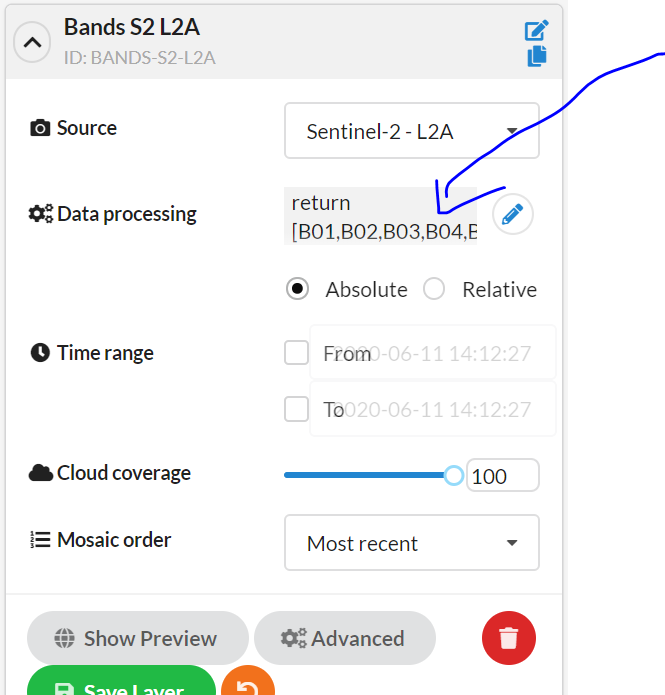Hi,
When we save a request through the ‘save_data = True’ parameter, is the order of the bands preserved?
For example, if we open the saved tiff file through Rasterio (or any other GIS package), the layers (0 to 12) should correspond to the return’s order ([B01,B02,B03,B04,B05,B06,B07,B08,B8A,B09,B1972,B12] for a ‘Bands S2 L2A’ request).
This is indeed the case right?
Sample of my request:
wcs_bands_request = sentinelhub.WcsRequest(
data_source=sentinelhub.DataSource.SENTINEL2_L2A,
layer=‘BANDS-S2-L2A’,
bbox=bb,
time=(‘yyyy-mm-01’, ‘yyyy-mm-16’),
resx=‘10m’,
resy=‘10m’,
image_format=sentinelhub.MimeType.TIFF_d32f,
data_folder = ‘xxx’,
maxcc=0.3,
time_difference=datetime.timedelta(hours=2),
config=config,
)
wcs_bands_img = wcs_bands_request.get_data(save_data = True)



